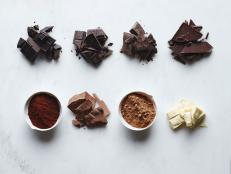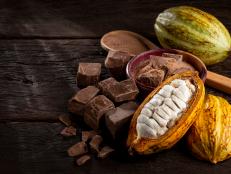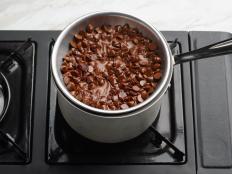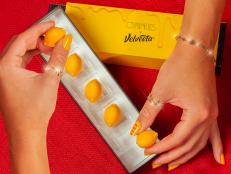This Week’s Nutrition News Feed

In this week's nutrition news: Yet another excuse to eat chocolate (yes, yes -- in moderation); a calorie counter worthy of Star Trek; and two new protein powders muscle in on the scene.
A new study published in the Journal of Nutrition found that eating more foods containing flavonoids may offer protection against type 2 diabetes. Researchers analyzed close to 2,000 questionnaires completed by women between the ages of 18 and 76 and found that those who ate the most anthocyanins and flavones -- varieties of flavonoids found in berries, red grapes and yes, chocolate and wine -- had the lowest insulin resistance. England's National Health Service website was quick to point out the study's limitations and warn everyone not to go overboard on chocolate and red wine just yet. (Fair enough.)
According to makers of the device, a new gadget called the TellSpec uses a laser beam to examine molecules in a serving of food and provide analysis -- from specks of gluten to levels of trans fat to calorie count -- that can be delivered right to the user's phone. The company's CEO says the product was inspired by her daughter, who has several food allergies. But inquiring eaters will have to wait: The kitchen spectrometer is still in the prototype phase.
Whey and soy have been the traditional top guns in the world of protein powders, but two new contenders, both plant-based, are muscling in on the competition. (Whey is derived from dairy.) Sprouted brown rice protein and pea protein are new faces on the protein powder market, in part due to rising costs of whey and a higher demand for vegan products.
According to the theory behind the Blood Type Diet, created by Peter D'Adamo, the food we eat should vary according to blood type: A, B, AB or O. Researchers at the University of Toronto in Canada, seeking to determine if blood type has anything to do with dietary needs and health, examined close to 1,500 young and healthy adults and had the participants follow D'Adamo's diet. The results, published in the journal PLoS One, found no correlation between blood type, foods eaten and long-term health issues.
A new report released by the United States Department of Agriculture (USDA) found that more Americans are dining at home, eating fewer calories and paying more attention to the food they buy. One contributing factor: The recent downfall of the economy forced many to eat out less and cook at home more. Between 2005 to 2010, average daily calorie intake for most adults dropped by 118.
Toby Amidor, MS, RD, CDN, is a registered dietitian and consultant who specializes in food safety and culinary nutrition. See Toby's full bio »


































